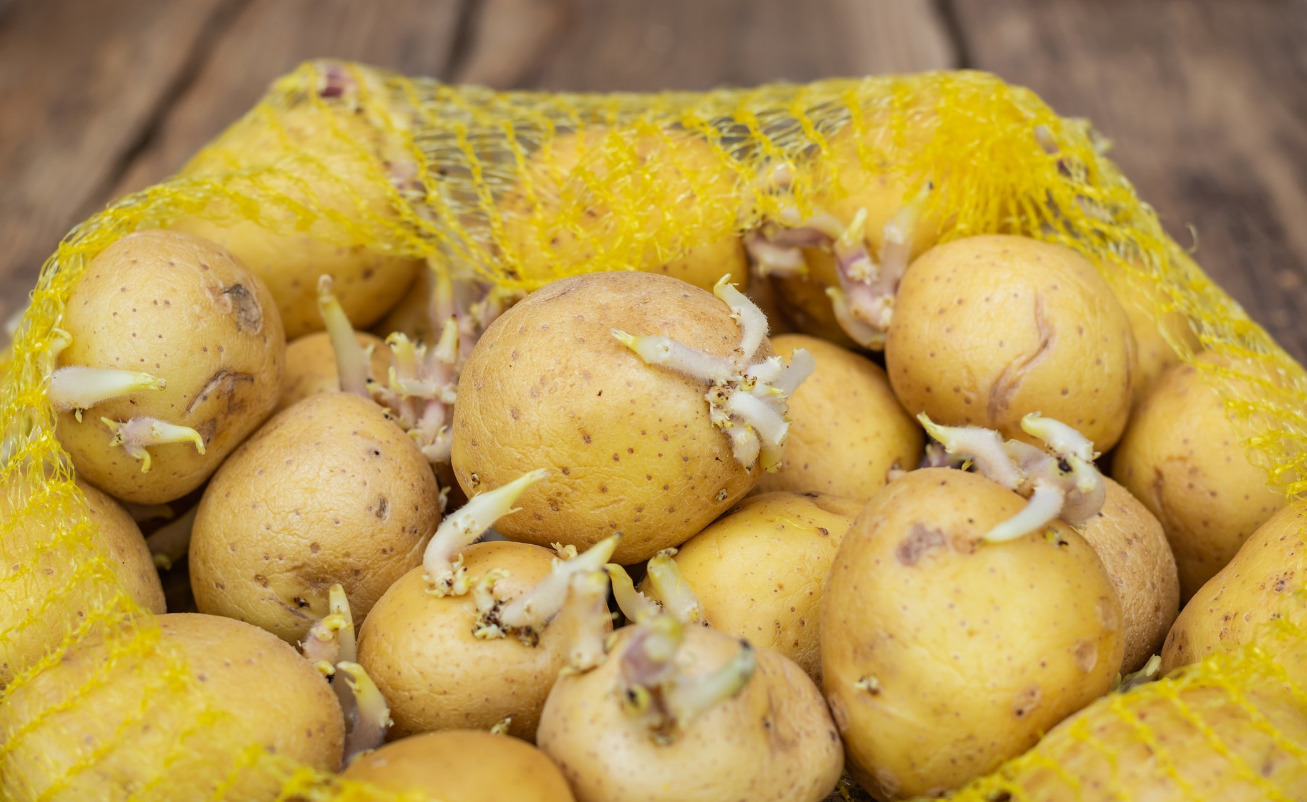Are Sprouted Potatoes Safe to Eat?

source: VIKTORIIA OLEINICHENKO/GETTY IMAGES
Picture this: you open your pantry and find a bag of potatoes. But wait, some of them have sprouted like they’re reaching for the sky. Now, you might wonder, is it safe to eat sprouted potatoes? Should you toss them away or can you salvage them for a tasty meal? Let’s dive into the world of spuds and find out!
The Sprout Dilemma
First things first, those sprouts on your potatoes are like nature’s warning sign. They indicate that your spuds have accumulated higher levels of some not-so-friendly toxins compared to their fresh, un-sprouted counterparts. These natural troublemakers are called glycoalkaloids, specifically solanine and chaconine.
The Toxic Duo: Solanine and Chaconine
Solanine and chaconine are the potato’s built-in defense mechanism against pests and predators. These compounds can cause a range of unpleasant symptoms in humans, from nausea and vomiting to headaches and stomach cramps. In extreme cases, consuming large amounts of glycoalkaloids can even lead to more serious health issues. So, it’s a good idea to tread carefully when dealing with sprouted spuds.
Sprouts Mean Higher Toxin Levels
Now, here’s the kicker: the longer a potato sprouts, the more glycoalkaloids it accumulates. So, those little sprouts aren’t just harmless shoots; they’re a sign that your potato has been busy amassing toxins. Not something you want on your plate!

To Eat or Not to Eat?
Okay, now that we’ve established the potential risks, let’s talk about your options. If your potato has only a few small sprouts or they are easily removable, you can salvage the rest of the potato by cutting away the sprouted parts. Make sure to discard any green or soft portions, as they’re likely to contain the highest concentration of glycoalkaloids.
Storage Tips to Avoid Sprouted Potatoes
Prevention is the best cure, right? To keep your potatoes from sprouting prematurely, here are some handy storage tips:
Cool and Dark: Store your potatoes in a cool, dark place, away from direct sunlight. This helps slow down sprouting.
Dry Environment: Keep them in a dry environment. Moisture encourages sprouting, so avoid storing potatoes in a damp area.
Well-Ventilated: Ensure proper ventilation in your storage space. Good airflow can help extend the shelf life of your spuds.
Separation: Don’t store potatoes near onions. Onions release gases that can accelerate sprouting in potatoes.
Using Those Sprouts Creatively
Now, here’s a fun twist. You don’t necessarily have to toss those sprouts in the trash. In fact, you can put them to good use! If you’re feeling adventurous and have a bit of green space, plant those sprouts in the ground during the early spring. You might just end up with a new crop of potatoes. It’s like recycling nature’s way!
When it comes to sprouted potatoes, it’s best to err on the side of caution. If they have sprouted a little, you can salvage the non-sprouted parts, but be sure to remove any green or soft areas. Preventing sprouting in the first place with proper storage is your best bet. And hey, if you’re up for a gardening experiment, you can try planting those sprouts and see what spud surprises await you. Just remember, nature’s little warning signs are there for a reason, so always use your best judgment when it comes to food safety.